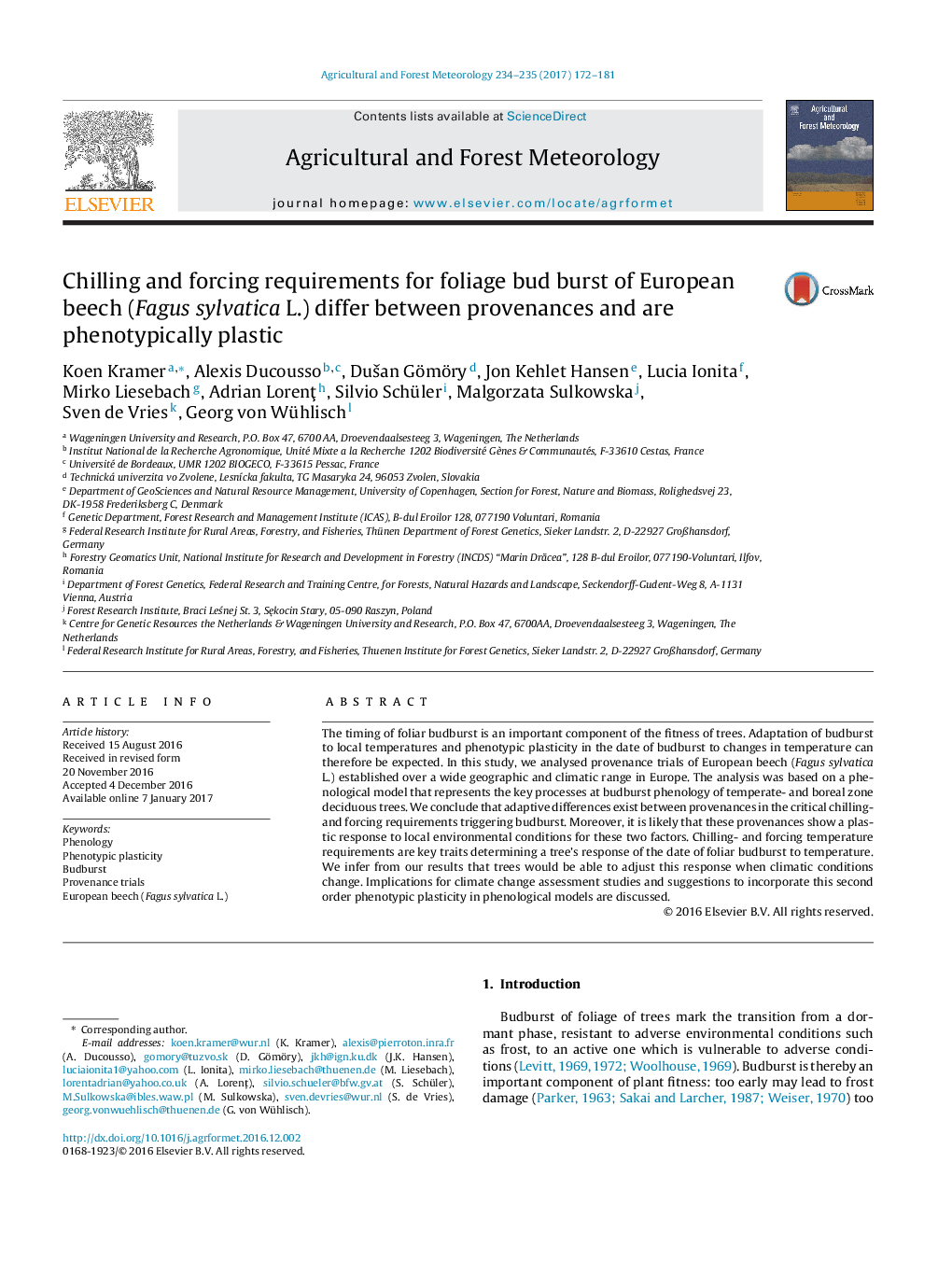| Article ID | Journal | Published Year | Pages | File Type |
|---|---|---|---|---|
| 6457996 | Agricultural and Forest Meteorology | 2017 | 10 Pages |
â¢Provenance trials are unique to assess tree phenology response to climate change.â¢Foliar budburst response to temperature is phenotypically plastic.â¢Dynamic vegetation models need to take this plasticity into account.
The timing of foliar budburst is an important component of the fitness of trees. Adaptation of budburst to local temperatures and phenotypic plasticity in the date of budburst to changes in temperature can therefore be expected. In this study, we analysed provenance trials of European beech (Fagus sylvatica L.) established over a wide geographic and climatic range in Europe. The analysis was based on a phenological model that represents the key processes at budburst phenology of temperate- and boreal zone deciduous trees. We conclude that adaptive differences exist between provenances in the critical chilling- and forcing requirements triggering budburst. Moreover, it is likely that these provenances show a plastic response to local environmental conditions for these two factors. Chilling- and forcing temperature requirements are key traits determining a tree's response of the date of foliar budburst to temperature. We infer from our results that trees would be able to adjust this response when climatic conditions change. Implications for climate change assessment studies and suggestions to incorporate this second order phenotypic plasticity in phenological models are discussed.
